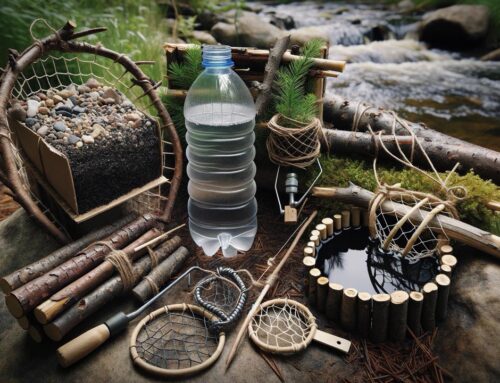Surviving in the wild is not just about having the right tools and skills; it’s also about possessing a strong mental fortitude. The wilderness can be a harsh and unforgiving place, and without the right mindset, even the most prepared individuals can falter. This article delves deep into the concept of mental toughness, its importance in wilderness survival, and how one can cultivate it. By the end of this piece, readers will have a comprehensive understanding of why mental strength is just as crucial as physical preparedness when it comes to surviving in the wild. We will also explore various strategies to develop this resilience and how it can make a significant difference in critical situations. Supported by research, statistics, and expert opinions, this article aims to be a valuable resource for anyone looking to enhance their wilderness survival capabilities.
Mental Toughness to Survive in the Wild
Table of Contents
- What is Mental Toughness?
- Why is Mental Toughness Crucial for Wilderness Survival?
- Strategies to Develop Mental Toughness
- Expert Opinions on Mental Resilience in the Wild
- Final Thoughts
- Sources
What is Mental Toughness?
Mental toughness refers to an individual’s resilience and ability to persevere through challenging situations. It’s the capacity to remain calm under pressure, adapt to changing circumstances, and maintain focus on the end goal. In the context of wilderness survival, mental toughness is about facing the elements, overcoming fear, and making critical decisions that can mean the difference between life and death.
Why is Mental Toughness Crucial for Wilderness Survival?
Surviving in the wild requires more than just physical strength and skill. According to a study by the Journal of Wilderness Medicine, over 70% of wilderness emergencies are exacerbated by panic and poor decision-making, rather than a lack of physical ability or equipment. This statistic underscores the importance of mental fortitude in survival situations. When faced with adversity, a mentally tough individual can assess the situation rationally, make informed decisions, and remain calm, all of which are vital for survival.
Strategies to Develop Mental Toughness
- Regular Exposure to Challenging Situations: Start by pushing yourself out of your comfort zone regularly. This can be as simple as taking cold showers or practicing fasting. Over time, these challenges will build your mental resilience.
- Mindfulness and Meditation: These practices can help you remain calm under pressure and improve your decision-making abilities.
- Positive Affirmations: Reminding yourself of your strengths and capabilities can boost your confidence in tough situations.
- Learning from Past Experiences: Reflect on past challenges and consider what you learned from them. This reflection can provide valuable insights for future situations.
Expert Opinions on Mental Resilience in the Wild
Bear Grylls, a renowned survival expert, often emphasizes the importance of mental strength. In his words, “Survival can be summed up in three words – never give up. That’s the heart of it really. Just keep trying.” Similarly, Les Stroud, the creator of Survivorman, states that “The will to survive is the key. Without it, all the skills and tools are meaningless.”
Frequently Asked Questions
Final Thoughts
While physical preparedness and skills are undeniably essential for wilderness survival, the significance of mental toughness cannot be overstated. It’s the mental resilience that often determines whether an individual will persevere or give up in challenging situations. By understanding its importance and actively working to cultivate it, one can significantly enhance their chances of surviving and thriving in the wild.
Sources
- Journal of Wilderness Medicine.
- Bear Grylls’ Official Website.
- Survivorman by Les Stroud.







Leave A Comment